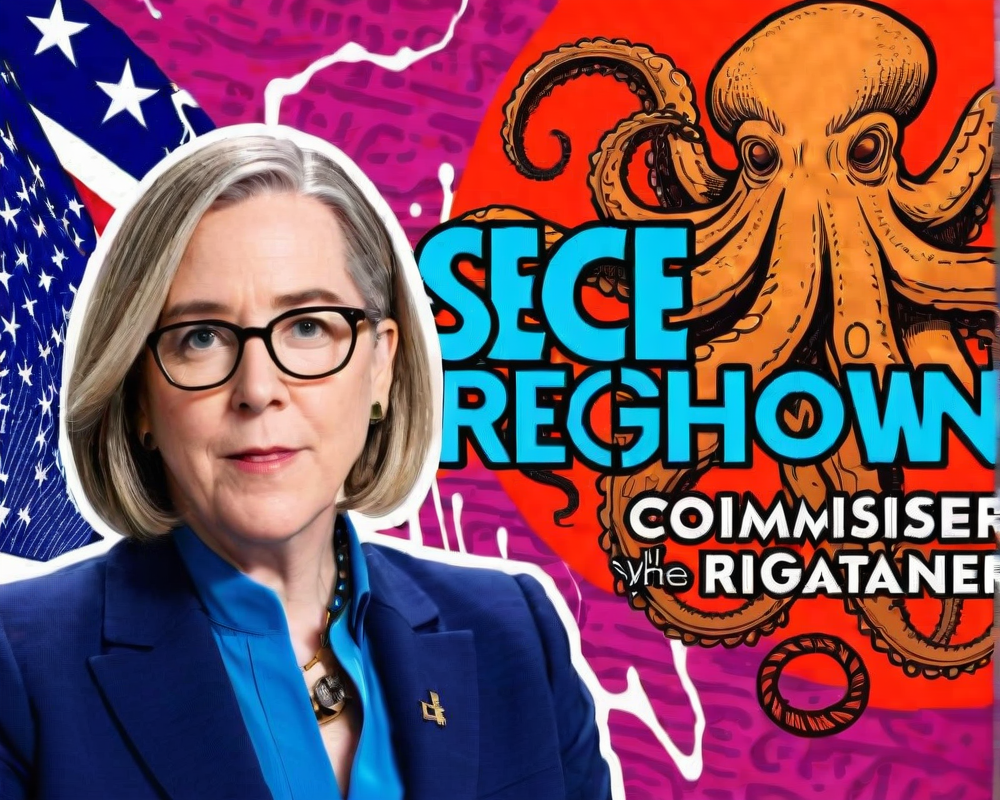Hester Peirce’s Dissent Against SEC Actions
In a surprising turn of events, SEC Commissioner Hester Peirce has taken a sledgehammer to her own agency, criticizing the recent decision to shut down Kraken’s crypto staking program. In her statement titled “Kraken Down,” Peirce emphasized that regulation by enforcement is as efficient as trying to bail out a sinking ship with a tea cup. With a strong stance, she declared: “I disagree and therefore dissent.”
What’s Staking, Anyway?
Before we dive deeper into this pot of regulatory soup, let’s break down what staking is. Think of it as investing in a high-interest savings account, but instead of dollars, you’re using cryptocurrencies. When you stake your coins with a platform like Kraken, you’re helping to verify transactions on the blockchain in exchange for earning rewards. The allure? Some services advertised returns as high as 21%—better than your regular bank!
A Regulatory Approach That Misses the Mark
According to Peirce, the SEC’s approach resembles the classic “one size fits all” sweater that just doesn’t fit anyone. In her statement, she suggested that treating all staking services as identical is misguided because, as she cleverly pointed out, “staking services are not uniform.” This cookie-cutter approach fails to acknowledge the diverse nature of cryptocurrencies and their services.
What Could Have Been Done Differently?
Peirce suggested that the SEC should engage in a more proactive dialogue with the crypto industry instead of playing the corporate enforcer. The solution? A little thing known as a public process to create reasonable registration frameworks that actually help consumers. After all, “using enforcement actions to tell people what the law is” doesn’t really make for a user-friendly experience in an evolving sector.
Backlash from the Crypto Community
Coinbase CEO Brian Armstrong jumped onto the dissent bandwagon, echoing Peirce’s criticisms. In his tweets, he labeled the SEC’s requirement for staking service registration as a “disingenuous offer.” If only there were lightbulbs and violins playing in the background as the crypto-loving community rallied together, but alas, reality hits us differently.
The Ripple Effect
Armstrong expressed concerns that the stifling of crypto staking could push U.S. companies offshore, hence driving innovation to less-regulated territories. It’s like sending a talented musician to a music festival full of other musicians without a stage: it temporarily handles the situation but ultimately stifles talent and creativity.
The Future of Crypto Regulation
Despite the rocky waters, Peirce, popularly dubbed the SEC’s “Crypto Mom,” continues to be a champion for more sensible crypto regulations. She’s previously pitched a “safe harbor” for budding token projects, offering them a three-year grace period to develop decentralized networks without the looming threat of legal hammer strikes. With her history of proposals, Peirce is a beacon of hope in a stormy regulatory sea.
Conclusion: A Call for Balanced Regulation
As Peirce’s critique highlights, it’s essential for regulators to step out of their rigid boxes and embrace the dynamic nature of cryptocurrencies. The dialogue must shift from punitive measures to collaborative efforts, aiming for clarity and fairness that benefits everyone involved in this exciting and ever-evolving financial frontier.




